What is an EP study?
Electrophysiology is a field of heart and vascular care that focuses on your heart’s electrical activity. Cardiologists who specialize in this field, called electrophysiologists, use specialized equipment and perform procedures to diagnose and treat irregular rhythms, or arrhythmias, when your heart’s electrical system doesn’t work properly.
One common diagnostic test electrophysiologists perform is an electrophysiology (EP) study. This study gives physicians a detailed look at your heart’s electrical activity and helps determine appropriate treatments for improving your heart rhythm.
What is an EP study used for?
EP studies can diagnose many different types of arrhythmias. Atrial fibrillation (AFib) is the most common type.
An EP study can:
- Find out what is causing any abnormal heart rhythms
- Identify from what part of your heart the arrhythmia originates
- Determine your risk of a sudden cardiac event
- Detect what is causing any fainting spells
What to expect with an EP study
Before the procedure
You will need to avoid eating or drinking anything the night before your study. Your care team will let you know if or when you need to stop taking medications.
If you have diabetes, tell your doctor about your diet and insulin regimen, as it can affect blood sugar levels and your results.
During the procedure
The EP study is done under conscious sedation or general anesthesia, depending on the clinical situation, and typically takes two to three hours. Catheters are generally inserted through the femoral vein of a leg near your hip area and then guided to different areas of the heart to record your heart’s electrical activity and log your heart rhythm. A pacemaker can be used to try to induce the arrhythmia, which can help diagnose the cause and determine its location.After the procedure
You may need to spend a few hours in a recovery area before you go home so your team can monitor the IV insertion site for bleeding and swelling.
When you go home, follow your care team’s instructions regarding medications you must take and activities to avoid.
You can start eating and drinking within four to six hours and return to your routine the day after the test.
Avoid driving for at least 24 hours.
EP study side effects
EP studies are safe and effective procedures with minimal side effects. Mild soreness and bruising where the IV was inserted are normal, but if your incision begins to bleed, call your physician.
Also, call your physician if you experience any of the following symptoms:
- Bruising that gets worse instead of better
- Color changes, swelling, discharge, numbness or tingling in the area where the IV was inserted
- Fever
- Shortness of breath
Call 911 if you notice:
- Chest pain or tightness
- Increased swelling around the incision
- Sudden, severe bleeding that does not stop after applying pressure
- Signs of stroke (weakness in your arm, drooping face or difficulty speaking)
Next steps after an EP study
Once your electrophysiologist identifies the type of arrhythmia you have and its cause, they can recommend treatment options, such as:
- A Holter monitor or other device that monitors your heart rhythm as you go about your daily activities
- An implantable cardiac defibrillator or pacemaker to regulate your heart rhythm
- Catheter ablation, a procedure in which your doctor scars the heart tissue causing your arrhythmia
Find a location near you
You will find expert, personalized care at all Baylor Scott & White EP lab locations. No matter which lab you visit, you can find convenient follow-up care and additional cardiology services at our locations across Central and North Texas.

Baylor Scott & White All Saints Medical Center - Fort Worth
1400 8th Ave , Fort Worth, TX, 76104
Baylor Scott & White Arrhythmia Management - Denton
3333 Colorado Blvd , Denton, TX, 76210- Monday: 8:00 am - 5:00 pm
- Tuesday: 8:00 am - 5:00 pm
- Wednesday: 8:00 am - 5:00 pm
- Thursday: 8:00 am - 5:00 pm
- Friday: 8:00 am - 5:00 pm

Baylor Scott & White Arrhythmia Management - Garland
7217 Telecom Pkwy Ste 205, Garland, TX, 75044- Monday: 8:00 am - 5:00 pm
- Tuesday: 8:00 am - 5:00 pm
- Wednesday: 8:00 am - 5:00 pm
- Thursday: 8:00 am - 5:00 pm
- Friday: 8:00 am - 5:00 pm

Baylor Scott & White Arrhythmia Management - Grapevine
2020 W State Hwy 114 Ste 320, Grapevine, TX, 76051
Baylor Scott & White Arrhythmia Management - McKinney
5236 W University Dr POB I, Ste 4900, McKinney, TX, 75071- Monday: 8:00 am - 5:00 pm
- Tuesday: 8:00 am - 5:00 pm
- Wednesday: 8:00 am - 5:00 pm
- Thursday: 8:00 am - 5:00 pm
- Friday: 8:00 am - 5:00 pm

Baylor Scott & White Arrhythmia Management - Plano
1820 Preston Park Blvd Ste 1450, Plano, TX, 75093- Monday: 8:00 am - 5:00 pm
- Tuesday: 8:00 am - 5:00 pm
- Wednesday: 8:00 am - 5:00 pm
- Thursday: 8:00 am - 5:00 pm
- Friday: 8:00 am - 5:00 pm
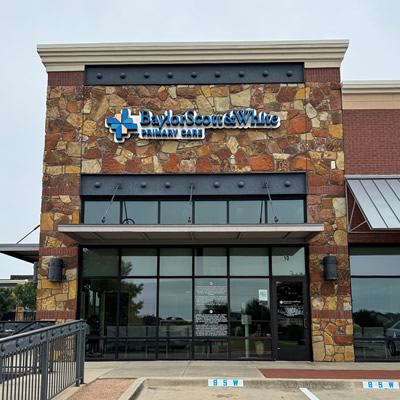
Baylor Scott & White Arrhythmia Management - Prosper
111 S Preston Rd Ste 10, Prosper, TX, 75078- Monday: 8:00 am - 5:00 pm
- Tuesday: 8:00 am - 5:00 pm
- Wednesday: 8:00 am - 5:00 pm
- Thursday: 8:00 am - 5:00 pm
- Friday: 8:00 am - 5:00 pm

Baylor Scott & White Arrhythmia Management - Rockwall
1005 W Ralph Hall Pkwy Ste 225, Rockwall, TX, 75032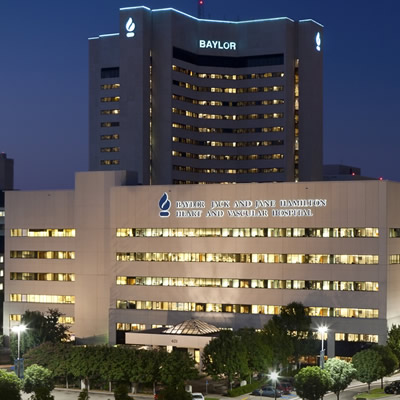
Baylor Scott & White Cardiology Consultants of Texas - Dallas
621 N Hall St Ste 500, Dallas, TX, 75226- Monday: 8:00 am - 5:00 pm
- Tuesday: 8:00 am - 5:00 pm
- Wednesday: 8:00 am - 5:00 pm
- Thursday: 8:00 am - 5:00 pm
- Friday: 8:00 am - 5:00 pm
- Monday: 8:30 am - 4:30 pm
- Tuesday: 8:30 am - 4:30 pm
- Wednesday: 8:30 am - 4:30 pm
- Thursday: 8:30 am - 4:30 pm
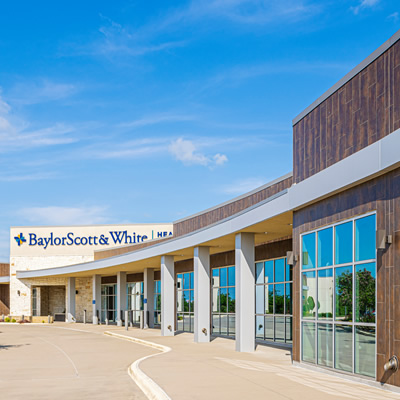
Baylor Scott & White Cardiology Consultants of Texas - Greenville
4400 Interstate 30 W Ste 300, Greenville, TX, 75402- Monday: 8:30 am - 5:00 pm
- Tuesday: 8:30 am - 5:00 pm
- Wednesday: 8:30 am - 5:00 pm
- Thursday: 8:30 am - 5:00 pm
- Friday: 8:30 am - 5:00 pm
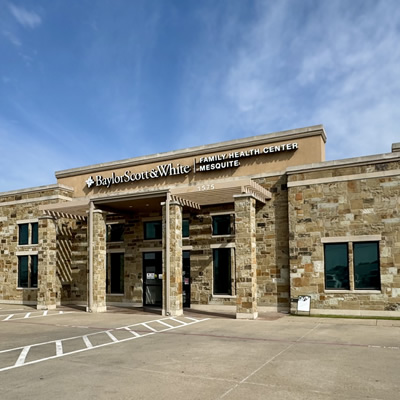
Baylor Scott & White Cardiology Consultants of Texas - Mesquite
1575 Interstate 30 , Mesquite, TX, 75150- Monday: 8:30 am - 5:00 pm
- Tuesday: 8:30 am - 5:00 pm
- Wednesday: 8:30 am - 5:00 pm
- Thursday: 8:30 am - 5:00 pm
- Friday: 8:30 am - 5:00 pm

Baylor Scott & White Cardiology Consultants of Texas - Midway
4431 E US Hwy 287 , Midlothian, TX, 76065- Monday: 8:00 am - 5:00 pm
- Tuesday: 8:00 am - 5:00 pm
- Wednesday: 8:00 am - 5:00 pm
- Thursday: 8:00 am - 5:00 pm
- Friday: 8:00 am - 5:00 pm

Baylor Scott & White Cardiology Consultants of Texas - Park Cities
9101 N Central Expy Ste 300C, Dallas, TX, 75231- Monday: 8:30 am - 5:00 pm
- Tuesday: 8:30 am - 5:00 pm
- Wednesday: 8:30 am - 5:00 pm
- Thursday: 8:30 am - 5:00 pm
- Friday: 8:30 am - 5:00 pm

Baylor Scott & White Cardiology Consultants of Texas - Red Oak
301 E Ovilla Rd Ste 100, Red Oak, TX, 75154- Monday: 8:00 am - 5:00 pm
- Tuesday: 8:00 am - 5:00 pm
- Wednesday: 8:00 am - 5:00 pm
- Thursday: 8:00 am - 5:00 pm
- Friday: 8:00 am - 5:00 pm
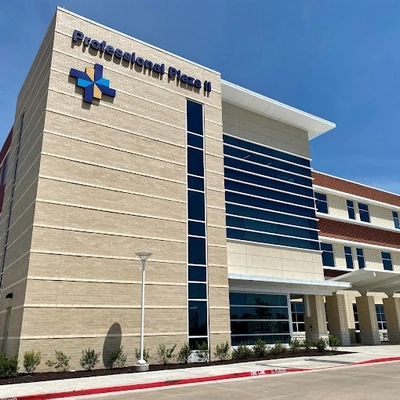
Baylor Scott & White Cardiology Consultants of Texas - Waxahachie
2360 N Interstate 35E Ste 110, Waxahachie, TX, 75165- Monday: 8:00 am - 5:00 pm
- Tuesday: 8:00 am - 5:00 pm
- Wednesday: 8:00 am - 5:00 pm
- Thursday: 8:00 am - 5:00 pm
- Friday: 8:00 am - 5:00 pm

Baylor Scott & White Cardiovascular Specialists - Mesquite
5308 N Galloway Ave Ste 201, Mesquite, TX, 75150- Monday: 8:00 am - 5:00 pm
- Tuesday: 8:00 am - 5:00 pm
- Wednesday: 8:00 am - 5:00 pm
- Thursday: 8:00 am - 5:00 pm
- Friday: 8:00 am - 5:00 pm

Baylor Scott & White Cardiovascular Specialists - Rockwall
6705 Heritage Pkwy Ste 202, Rockwall, TX, 75087- Monday: 8:00 am - 5:00 pm
- Tuesday: 8:00 am - 5:00 pm
- Wednesday: 8:00 am - 5:00 pm
- Thursday: 8:00 am - 5:00 pm
- Friday: 8:00 am - 5:00 pm

Baylor Scott & White Clinic - College Station Rock Prairie
800 Scott and White Dr , College Station, TX, 77845- Monday: 7:30 am - 5:00 pm
- Tuesday: 7:30 am - 5:00 pm
- Wednesday: 7:30 am - 5:00 pm
- Thursday: 7:30 am - 5:00 pm
- Friday: 7:30 am - 5:00 pm
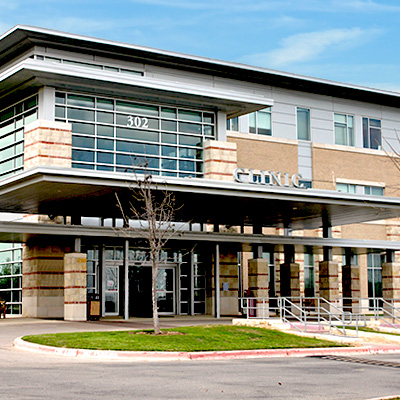
Baylor Scott & White Clinic - Round Rock 302 University
302 University Blvd , Round Rock, TX, 78665- Monday: 8:00 am - 5:00 pm
- Tuesday: 8:00 am - 5:00 pm
- Wednesday: 8:00 am - 5:00 pm
- Thursday: 8:00 am - 5:00 pm
- Friday: 8:00 am - 5:00 pm
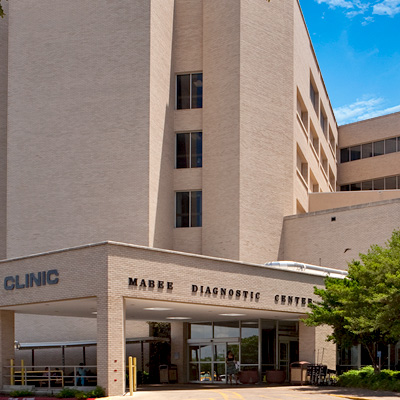
Baylor Scott & White Clinic - Temple
2401 S 31st St , Temple, TX, 76508- Monday: 8:00 am - 5:00 pm
- Tuesday: 8:00 am - 5:00 pm
- Wednesday: 8:00 am - 5:00 pm
- Thursday: 8:00 am - 5:00 pm
- Friday: 8:00 am - 5:00 pm
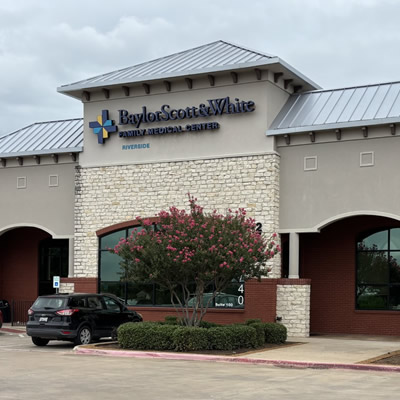
Baylor Scott & White Cottonwood Cardiology - Grand Prairie
2740 N State Highway 360 Ste 100, Grand Prairie, TX, 75050- Monday: 8:00 am - 5:00 pm
- Tuesday: 8:00 am - 5:00 pm
- Wednesday: 8:00 am - 5:00 pm
- Thursday: 8:00 am - 5:00 pm
- Friday: 8:00 am - 5:00 pm

Baylor Scott & White Cottonwood Cardiology - Irving
1110 Cottonwood Ln Ste 105, Irving, TX, 75038- Monday: 8:00 am - 5:00 pm
- Tuesday: 8:00 am - 5:00 pm
- Wednesday: 8:00 am - 5:00 pm
- Thursday: 8:00 am - 5:00 pm
- Friday: 8:00 am - 5:00 pm
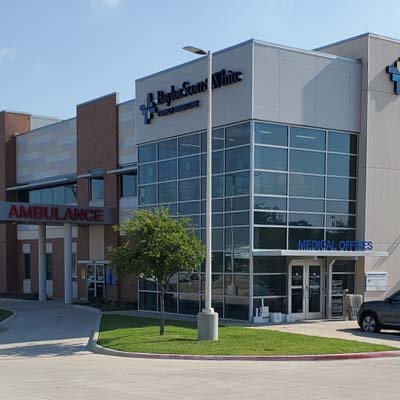
Baylor Scott & White Cottonwood Cardiology - Lake Ridge
3095 Kingswood Blvd Suite 250, Grand Prairie, TX, 75052- Monday: 8:00 am - 5:00 pm
- Tuesday: 8:00 am - 5:00 pm
- Wednesday: 8:00 am - 5:00 pm
- Thursday: 8:00 am - 5:00 pm
- Friday: 8:00 am - 5:00 pm

Baylor Scott & White Cottonwood Cardiology - Las Colinas
400 W IH 635 Ste 210, Irving, TX, 75063
Baylor Scott & White Heart and Vascular Hospital - Fort Worth
1400 8th Ave Bldg A, 6th Floor, Fort Worth, TX, 76104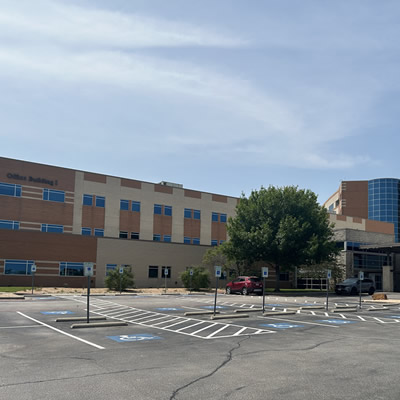
Baylor Scott & White Hillcrest Cardiology Clinic
50 Hillcrest Medical Blvd Ste 303, Waco, TX, 76712- Monday: 8:00 am - 5:00 pm
- Tuesday: 8:00 am - 5:00 pm
- Wednesday: 8:00 am - 5:00 pm
- Thursday: 8:00 am - 5:00 pm
- Friday: 8:00 am - 5:00 pm
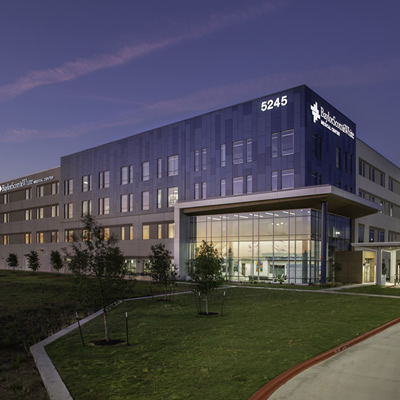
Baylor Scott & White Medical Center - Austin
5245 W US Hwy 290 Service Rd , Austin, TX, 78735
Baylor Scott & White Medical Center - Brenham
700 Medical Pkwy , Brenham, TX, 77833
Baylor Scott & White Medical Center - Centennial
12505 Lebanon Rd , Frisco, TX, 75035
Baylor Scott & White Medical Center - College Station
700 Scott and White Dr , College Station, TX, 77845
Baylor Scott & White Medical Center - Grapevine
1650 W College St , Grapevine, TX, 76051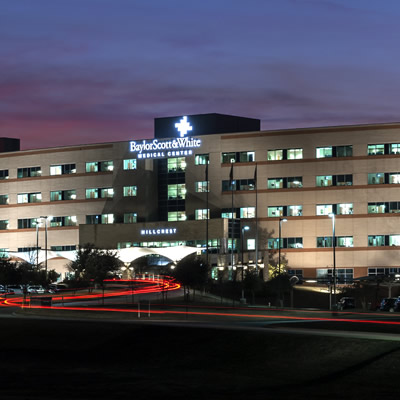
Baylor Scott & White Medical Center - Hillcrest
100 Hillcrest Medical Blvd , Waco, TX, 76712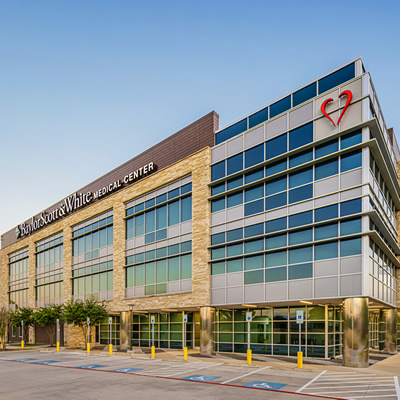
Baylor Scott & White Medical Center - Lake Pointe
6800 Scenic Dr , Rowlett, TX, 75088
Baylor Scott & White Medical Center - Lakeway
100 Medical Pkwy , Lakeway, TX, 78738
Baylor Scott & White Medical Center - McKinney
5252 W University Dr Highway 380 at Lake Forest Drive, McKinney, TX, 75071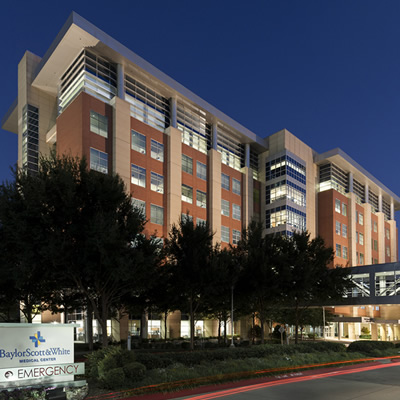
Baylor Scott & White Medical Center - Plano
4700 Alliance Blvd , Plano, TX, 75093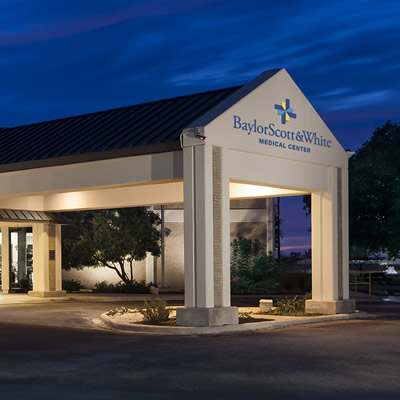
Baylor Scott & White Medical Center - Taylor
305 Mallard Ln , Taylor, TX, 76574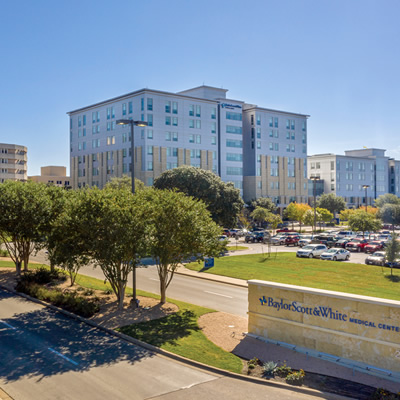
Baylor Scott & White Medical Center - Temple
2401 S 31st St , Temple, TX, 76508
Baylor Scott & White Medical Center - Waxahachie
2400 N Interstate 35E , Waxahachie, TX, 75165
Baylor Scott & White Specialty Clinic - Killeen Hemingway
2405 S Clear Creek Rd , Killeen, TX, 76549- Monday: 8:00 am - 5:00 pm
- Tuesday: 8:00 am - 5:00 pm
- Wednesday: 8:00 am - 5:00 pm
- Thursday: 8:00 am - 5:00 pm
- Friday: 8:00 am - 5:00 pm
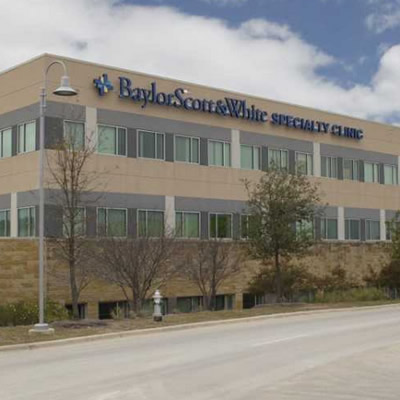
Baylor Scott & White Specialty Clinic - Lakeway
200 Medical Pkwy , Lakeway, TX, 78738- Monday: 8:00 am - 5:00 pm
- Tuesday: 8:00 am - 5:00 pm
- Wednesday: 8:00 am - 5:00 pm
- Thursday: 8:00 am - 5:00 pm
- Friday: 8:00 am - 5:00 pm
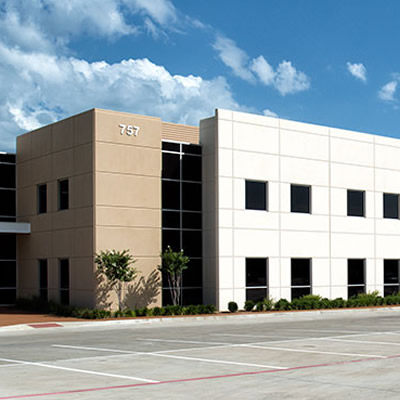
Baylor Scott & White Texas Cardiac Associates - Forney
763 E US Hwy 80 Ste 240, Forney, TX, 75126- Monday: 8:00 am - 5:00 pm
- Tuesday: 8:00 am - 5:00 pm
- Wednesday: 8:00 am - 5:00 pm
- Thursday: 8:00 am - 5:00 pm
- Friday: 8:00 am - 5:00 pm

Baylor Scott & White Texas Cardiac Associates - Rowlett
7801 Lakeview Pkwy Ste 100, Rowlett, TX, 75088- Monday: 8:00 am - 5:00 pm
- Tuesday: 8:00 am - 5:00 pm
- Wednesday: 8:00 am - 5:00 pm
- Thursday: 8:00 am - 5:00 pm
- Friday: 8:00 am - 5:00 pm

Baylor Scott & White Texas Cardiac Associates - Royse City
6257 FM 2642 Blvd Ste 100, Royse City, TX, 75189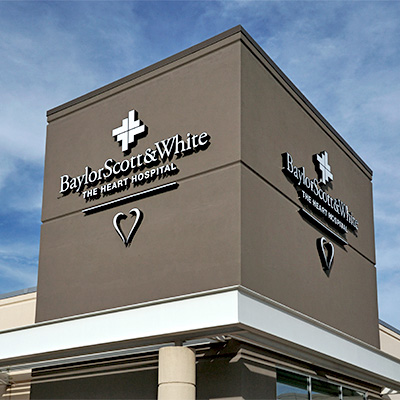
Baylor Scott & White The Heart Hospital - Denton
2801 S Mayhill Rd , Denton, TX, 76208
Baylor Scott & White The Heart Hospital - McKinney
5268 W University Dr , McKinney, TX, 75071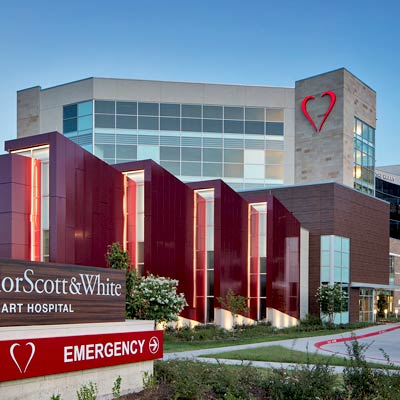
Baylor Scott & White The Heart Hospital - Plano
1100 Allied Dr , Plano, TX, 75093